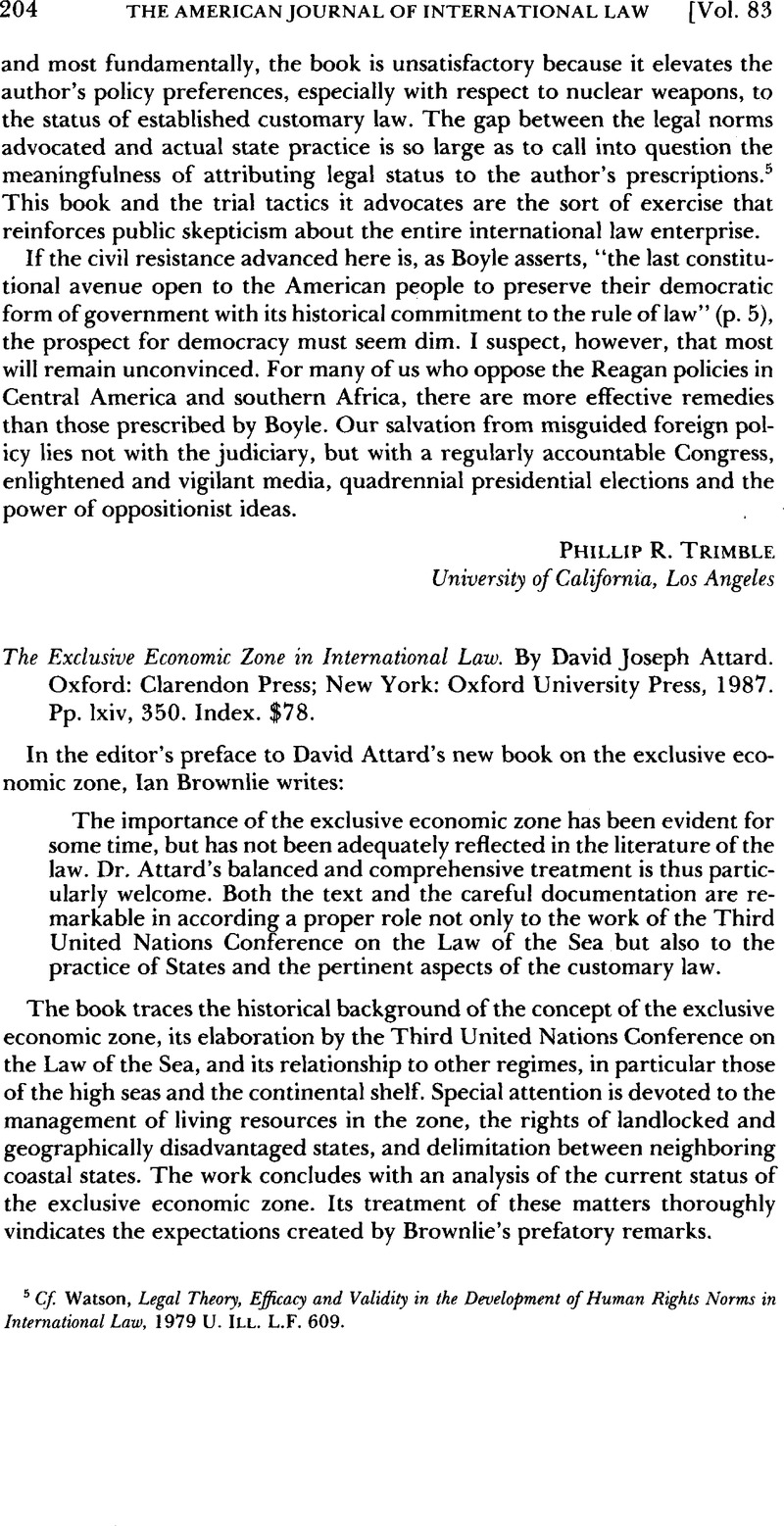No CrossRef data available.
Published online by Cambridge University Press: 27 February 2017

1 The geographic table drawn from publications by the Geographer of the U.S. Department of State unfortunately measures the size of the continental shelf only with reference to the out-of-date limit of the 200-meter isobath, but one must recognize the difficulties in ascertaining the limits of the continental margin in light of the complex provisions of Article 76 of the Convention on the Law of the Sea, and the fact that the issue is of only indirect importance to the study of the exclusive economic zone.
2 United Nations Convention on the Law of the Sea, Art. 56, opened for signature Dec. 10, 1982, reprinted in United Nations, Official Text of the United Nations Convention on the Law of the Sea, UN Sales No. E.83.V.5 (1983), 21 ILM 1261 (1982) (emphasis added). These qualifying words are particularly significant because many national laws omit them and the detailed articles they cross-reference, whether for reasons of form or economy of language, or otherwise.